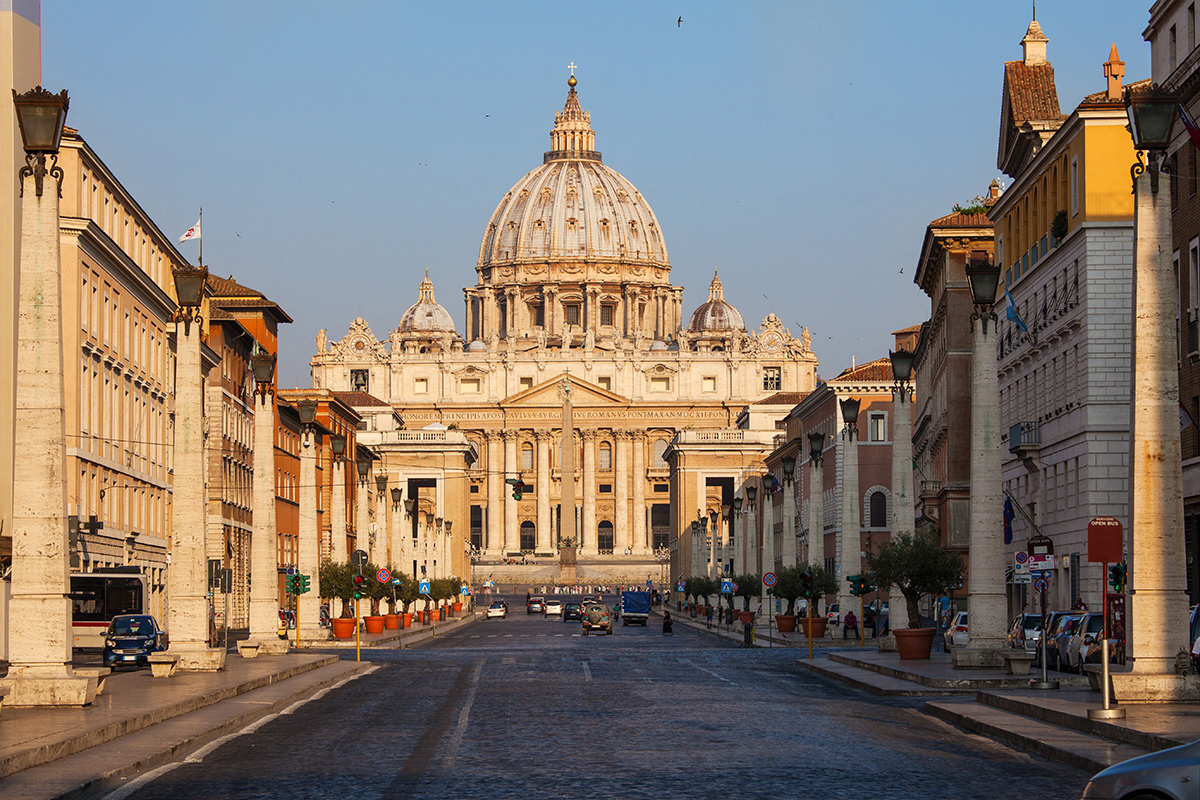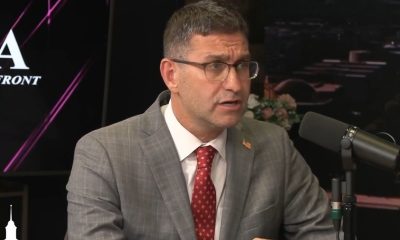Opinions
Council must approve new Commanders stadium deal
An important catalyst for economic development

I am a strong supporter of the Commanders stadium deal at the RFK site. The Council members who understand economic development will vote “yes.”
Chairman Phil Mendelson, and some of the others, are smart. Despite the chair being peeved he wasn’t in on the negotiation, he will have some good ideas to tweak the deal, and will then get the seven members of the Council needed to pass it. While the deadline is July 15, there is a paragraph in the agreement reading it can be extended if both sides agree. Again, Mendelson is a smart guy. He will not pass up this incredible opportunity. Besides that, he recognizes it could happen without the Council if the president and Congress want it. It was NFL Commissioner Roger Goodell, and Commanders owner Josh Harris, who worked with the mayor, lobbying hard to get us the 180-acre site. Chances are, without their help, we wouldn’t have it. So, the deal will move forward, as it should, based on its merits.
The domed stadium proposed by the Washington Commanders for the 180-acre RFK site is only one part of the planned incredible economic development opportunity Mayor Muriel Bowser has negotiated. This was a dream of the mayor for 10 years, and she worked with Congress to get the site turned over to the District. This finally happened last year when Congress passed the D.C. Robert F. Kennedy Memorial Stadium Campus Revitalization Act. The legislation was signed into law by President Biden in January 2025. It gave the District the ability to develop the long-underutilized space for a mix of uses, lifting the restrictions that were in place under the previous lease. The legislation requires 30% of the RFK campus be reserved for parks and open space, not including a 32-acre riparian area along the Anacostia River.
Since the legislation was signed, the mayor worked closely with Josh Harris, principal owner of the Commanders, to negotiate the single largest private investment in the District’s history — a $2.7 billion investment from the Commanders. The mayor understands this investment will be the catalyst to activate 180 acres of what she has called ‘opportunity’ at the RFK campus. It is not only a sparkling new domed stadium. That will complement the transformation of the entire campus to include housing, parks and recreation, hotels, restaurants, retail, and neighborhood amenities.
The mayor understands the economy of D.C. is changing. Between the pandemic, and now reduction in federal workforce, the city has to change how we generate revenue. As the mayor said, “When we got control of 180 acres of land on the banks of the Anacostia, we knew right away that partnering with the Commanders would be the fastest, and surest, route to bringing the entire RFK campus to life. As we focus on the growth of our economy, we’re not only bringing our team home, but we’re also bringing new jobs and new revenue to our city, and to Ward 7.” We have seen what Nationals’ stadium did as the catalyst for that part of D.C. Remembering the fights over that stadium, and the fact the city, not the team, paid for it, we know it moved forward profitable development of the entire area by a minimum of 10 years.
Yes, it may be possible to redevelop this 180-acre site without a stadium; but it’s also clear it would take at a minimum at least 10 years longer, if ever, to do it without the Commanders investment. Under the terms of the deal, the Commanders will drive the investment of at least $2.7 billion to build a roofed stadium that can be used year-round, together with related improvements. The District will invest $500 million for stadium horizontal and non-vertical costs, paid for from the Sports Facilities Fee (formerly known as the Ballpark Fee). By leveraging dedicated funds from the Sports Facilities Fee, the District will not need to make cuts to the city’s operating budget. In addition, the District will facilitate parking development using a $175 million revenue bond, which will be funded by in-stadium activity once the stadium is operating. Events DC will contribute up to $181 million for parking garages near the community recreation facilities, which Events DC will own. Additionally, similar to other large development projects such as St. Elizabeths East, the District will invest $202 million for utilities infrastructure, roadways, and a WMATA transit study. The study will determine if at some time there might be new bus routes, or even an additional Metro stop. Let us remember there was a stadium there before and the RFK campus is today readily accessible by many public transit options.
The approximately 65,000-seat stadium, expected to open in 2030, will occupy only 11% of the site. In addition to building the stadium, the Commanders will be responsible for activating and developing multiple parcels of land around the stadium. Those will include restaurants, entertainment venues, hotels, housing, green space, and more. The entire campus is expected to create approximately 5,000-6,000 housing units, of which at least 30% being affordable housing.
Throughout the construction process, the District will seek to preserve and continue to operate the popular Fields at RFK. The District will invest an additional $89 million to build a new sportsplex to host year-round sporting events and tournaments for youth in D.C. The mayor’s Fiscal Year 2026 budget proposal will include $89 million for the sportsplex. Adjacent to the fields, park space, and sportsplex, the District will develop a new Kingman Park District, which will include housing, mixed-use development, open space, and recreational space. To do this, the campus planning effort, will be taking all the development parcels through the D.C. 2050 Comprehensive Plan update. In this way, community members and neighbors will have an opportunity to weigh in on what types of uses would best serve the community. All parcels in the Kingman Park District will go through the District’s RFP process and prioritize local businesses.
As the economy of the District changes, the mayor and Council must be
focused on responding to the shifts. Activation of the RFK campus through this deal is expected to create approximately 14,000 jobs in connection to the stadium construction alone, and 2,000 permanent jobs. The stadium and surrounding development are anticipated to create approximately $4 billion in total tax revenue, and yield more than $15.6 billion in direct spending over 30 years.
The District has a successful history of using catalytic sports investments to transform underutilized spaces into vibrant neighborhoods, including in Chinatown-Gallery Place with Capital One Arena (originally the MCI Center); Capitol Riverfront with Nationals Park; and St. Elizabeths East with the CareFirst Arena (originally the Entertainment and Sports Arena) in the past decade. During her time in elected office, the mayor has worked on successful deals for Audi Field, the CareFirst Arena, the renovation of Capital One Arena, and now this partnership with the Washington Commanders.
Again, Mendelson will have some good ideas that he will want to negotiate into the agreement as it moves through the Council. But the overall positive impact of this deal on the District’s economy will win the day. He, and many Council members, understand major sports are a significant driver of the District’s new economy, generating $5 billion in 2022 and attracting 7.4 million visitors in 2023. The fact is D.C.’s sports teams and their facilities have boosted neighborhood investment, with nearby commercial development outpacing the rest of the city, after each facility opened.
This is a once-in-a-lifetime deal for D.C. I urge everyone to contact your Council member, and tell them to vote yes.
Peter Rosenstein is a longtime LGBTQ rights and Democratic Party activist.
Opinions
Virginia 2025 GOP ticket gives DEI a bad name
John Reid’s views on trans issues are repugnant

The GOP ticket up for election in Virginia in 2025, is trying to prove DEI is bad. The ticket is Black, gay, and Latino and supports the racist, homophobic, misogynist, found liable for sexual assault, felon, in the White House.
There is all of this hullabaloo created by MAGA Virginia Gov. Glenn Youngkin about John Reid, the gay member of the DEI team, running for lieutenant governor, being on a porn site, or sending out pornographic material. There is no indication this is true, or if it is, that it was in any way illegal. There is most likely no young person today, straight or gay, who hasn’t visited a porn site — and not only young people. It is Reid’s own business. The issue for me is Youngkin and his aides, making this about Reid’s sexual orientation. That is despicable, but I would expect nothing less from this governor.
Clearly, I have no problem with Reid being gay. But it’s sad to see all the homophobic Republicans getting themselves in a twit over this. The reality is there are so many other things for decent people to be bothered about when it comes to John Reid’s candidacy. His stated views on so many areas are disturbing. His clear disdain for the trans community is offensive. His use of the term ‘wokism,’ which he, like so many other Republicans who use it, never explain what the hell it means to them.
Then I am always amazed when a member of a minority, thinks it’s OK to attack another minority. In Reid’s case it is surely a sign of a lack of self-worth. In any event, it is really disgusting. That is only the beginning of the issues I have with Reid. On his website Reid states “He believes we should prioritize first-class learning in education, free from leftist indoctrination.” What does that mean? Does it include banning gay-themed, and African American history books, among others, from school libraries? He says he is “dedicated to safeguarding and gaining knowledge from our heritage, rather than obliterating it. He appreciates the significance of our history and will always advocate for conserving our cultural landmarks and enlightening future generations about the foundation of our nation.”
Does that mean keeping up Confederate statues or using Confederate names for public institutions? Reid says “he is focused on stopping the divisive wokeness and bringing Virginians together on common values for a stronger future.” He claims to be “uniquely positioned to take the fight to the radical progressives head-on as he continues his fight against boys in girls’ sports, and the extreme trans-agenda being forced upon our children.” He calls that “common sense values.” I don’t think most of that would seem like common sense to any decent person.
He says, “You know best how to live your life and will fight to allow adults to make their own decisions without government intervention.” That is except for trans people, a woman who wants to control her own body, and healthcare, and anyone else he disagrees with.
He also says “we all must pay our own bills and personally own and be responsible for the consequences — good and bad, of our decisions.” Does that mean he opposes Medicaid, any government assistance for the poor, government sponsored pre-school, aid for childcare, or even assistance from a church or community group?
Then there is his full-throated support for Jason Miyares running on the ticket for attorney general, and Winsome Earle-Sears, the candidate for governor, both MAGA Republicans like himself, all giving their mutual strong, blind support, to the felon, racist, homophobic, misogynist, found liable for sexual assault, liar, in the White House. They continue to support him as he, and his Nazi sympathizing co-president, fire thousands of Virginians, including veterans, who fought, and were willing to risk their lives, for our country. They all support the felon as he slashes medical research programs for children. The felon who is cutting hot lines for the LGBTQ community to reach out if they have mental health issues. The felon who is cutting HIV/AIDS research, and hundreds of other grants, at NIH, dedicated to improving the health of the LGBTQ community, along with other programs the felon has cut, which will lead to more deaths around the world from polio and malaria. This is the GOP ticket in Virginia in 2025.
For the good of Virginians, and the nation, vote for Abigail Spanberger for governor, and the entire Democratic ticket, up and down the ballot.
Peter Rosenstein is a longtime LGBTQ rights and Democratic Party activist.
Opinions
The power of queer community: When aid is cut, we don’t disappear. We organize
US funding withdrawal has had global impact

The global LGBTIQ+ movement is being systematically undermined, not just by eroding legal protections and escalating political harassment, but by the sudden withdrawal of vital funding. What began in the U.S. as a flurry of policy changes under Donald Trump has become a global flood of cuts, bans, and deliberate dehumanization. This week in Nairobi, prominent ultra-conservative campaigners from around the world, who are against abortion, transgender and LGBTIQ+ rights, and sexuality education, are speaking at the Pan-African Conference on Family Values.
Grassroots organizations, which are the backbone of queer survival and resistance around the world, are struggling to stay afloat. The global funding squeeze will and has already started to directly impact frontline organizations, forcing them to scale back, shut down programs, or close entirely.
In South Africa, support groups have slashed services due to the sudden disappearance of U.S. aid. In Mali, new laws criminalize LGBTIQ+ identities altogether. These regressions are not organic, they are engineered as American evangelicals continue to export anti-LGBTIQ+ ideologies across Africa.
In Europe, trans rights are being rolled back under the guise of biological essentialism, most recently validated by the U.K. Supreme Court’s ruling to exclude trans women from the legal definition of “woman.” In Hungary, LGBTIQ+ events have been constitutionally banned.
In the U.S., Trump is once again weaponizing his platform to push bans on gender-affirming care for minors and cut LGBTIQ+ research funding, all under the banner of “protecting children.” Elon Musk, once a corporate ally for LGBTIQ+ rights, now echoes far-right voices and launches transphobic tirades in tandem with personal attacks against his own daughter.
This is a coordinated, well-funded, and transnational anti-rights campaign to strip queer people of rights, dignity, and resources. At Hivos, we see this backlash as a call to deepen our commitment to centering queer voices, challenging harmful narratives with data and lived experiences, and working to strengthen the LGBTIQ+ movement globally.
We cannot fight this movement with performative IDAHOBIT posts on social media alone. We need action, international solidarity, and a recommitment to protecting queer lives.
What’s at stake?
This isn’t about identity politics. It’s about survival.
When the USAID funding freeze came into effect in early 2025, the Hivos-led EU SEE network conducted a survey on the impact of the freeze on civil society organizations around the world. Most surveyed organizations are reducing staff, scaling down programs, or reallocating budgets.
Outright International had to cut more than 120 grants to LGBTIQ+ organizations in 42 countries following U.S. aid freezes with devastating consequences: Lost access to trauma care for survivors of gender-based violence, the dismantling of HIV prevention networks, and increased discrimination, arrests, and violence. Outright International is only one of many organizations that have had to cut grants and funding.
Grassroots mutual aid groups in East Africa, working with minimal resources, have pioneered radical community models by providing housing, legal aid, and emergency support in the absence of government protection. These groups don’t just serve communities; they are the communities. Their defunding is not only cruel; it is a death sentence for countless individuals.
Economic justice and LGBTIQ+ liberation
Justice isn’t just legal, it’s economic. In most contemporary societies, justice is also closely tied to economic power. Around the world, LGBTIQ+ people face disproportionate levels of poverty, unemployment, housing insecurity, and workplace discrimination. Economic inclusion shouldn’t be an afterthought to queer rights around the world – it is foundational to their survival and dignity.
And yet, reports from Outright International, the Williams Institute, and the World Bank affirm that LGBTIQ+ economic inclusion benefits society as a whole. When the queer community is excluded, the human and financial costs are steep. The economic marginalization of LGBTIQ+ people lowers GDP, deepens inequality, and entrenches cycles of sexual and gender-based violence. So we also need systemic change that includes LGBTIQ+ people in broader economic opportunities — from education to employment and entrepreneurship opportunities.
There are strategies to bring LGBTIQ+ inclusion to the forefront. At Hivos, through the Free to be Me program, we have seen successes in LGBTIQ+ economic inclusion from the establishment of the Queer and Allied Chamber of Commerce of Africa to our partners in the Philippines successfully supporting the Lapu-Lapu city council’s Anti-Discrimination Ordinance. Positive developments like these are just one part of creating safer social, political, and legal environments allowing LGBTIQ+ people to have equal access to resources, opportunities, and decision-making.
What do we do now?
If governments won’t lead, then LGBTIQ+ communities and our allies must.
- Philanthropic foundations must step up. Some foundations have pledged to increase support, but the momentum pales in comparison to the urgency. Funding must be flexible, long-term, and led by community input.
- Media and influential individuals must confront hate speech head-on. Political leaders like Donald Trump aren’t “debating” gender identity — they’re inciting division and violence. Do not let bigotry define the narrative. Bigotry is not a “debate” its incitement
- Corporations must put money where their rainbows are. Pride-themed products without meaningful reinvestment into queer causes are nothing more than branding and pinkwashing. Corporations must ensure LGBTIQ+ employees are supported and protected.
- Solidarity demands more than words, donating directly to grassroots organizations and mutual aid funds. Speak up. Pressure local leaders. Boycott non-inclusive organizations and corporations. Demand change.
- Bring LGBTIQ+ voices into policymaking spaces. When the LGBTIQ+ community participates in the legislative process — and when advocates and organizations receive the funding they need to support long-term, transformative impact — the potential for positive change and inclusivity is endless.
Continuing the fight from previous generations
Queer communities have always faced adversity with grit, love, and radical imagination. But resilience is not infinite. Without funding, protection, and political will, resilience can end up in burnout.
Let’s do more than celebrate the queer community — let’s mobilize. We can take inspiration from the 2024 protests in Peru against a law classifying transgender people and other LGBTIQ+ people as mentally ill, which succeeded in getting the law scrapped within a month. The future of LGBTIQ+ rights will not be decided in courtrooms or campaign rallies alone. It will also depend on whether we show up right now, with our money, our voices, and our actions. Because when aid is cut, we don’t disappear. We organize.
Susan Githaiga is a Pan-African, feminist and human rights defender grounded in the belief that none of us are free until all of us are free as inspired by Lilla Watson and collective Black feminist thought. As the Global Program Manager of Free to Be Me Hivos, she leads a transformative initiative across 12 countries in Africa, MENA, and Southeast Asia, partnering with over 160 LGBTIQ+ CSOs and movements to advance human and economic rights and resilience. A strategist, bridge-builder and movement weaver, Susan thrives at the intersection of advocacy and grassroots power.

Opinions
My chance encounter with a pope and why goodness still matters
Early morning Vatican stroll turns into unforgettable memory

It’s not every day you meet a pope. Mine was Pope John Paul. In the recent passing of Pope Francis, and all the love and generosity of this ”People’s Pope,” I was reminded of a similar man, with a similar heart, who I had the fortune to one day meet.
There’s no real yardstick for measuring a man who’s the head of an institution that has been around since the Romans, who commands the respect of more than a billion people, and whose job it is to keep alive a 2,000-year-old message of love, hope, generosity, and salvation.
I wasn’t planning on meeting him. More like it was fated, or I’d like to believe that.
I was on a spiritual journey of my own. My schoolwork was over in Norway, and I was headed to Lebanon to write about the war there. I was a young man of 17, trying to figure out the world and how it worked — or didn’t.
It was a week before Easter when I found myself in Rome, standing at the far edge of St. Peter’s Square. As I remember, it was very early and a very beautiful morning, sometime around six or so. Even at that age, I found great solace in the solitude of the early morning. It’s as if I had the entire Square to myself, reflecting on this singular moment in time that I was alone in one of the greatest places of spiritual gathering in the world.
But I wasn’t alone. Next to the fountain where I had parked my backpack laid a man, curled up next to the stone wall, in the gentle universal snore of inebriation. I quietly cupped some water to wash my face and neck, which apparently was enough to stir the man from his sleep.
I nodded my head at him, smiled, and gave a short wave in the universal sign that we were all good and passing fellows. He groggily waved back. I was about to gather up my rucksack and head out when I saw a man strolling across the far side of the Square, about 100 yards away He was in no hurry, which intrigued me. Another soul in search of morning quietude, I thought to myself. He sauntered along, thoroughly enjoying the morning air, occasionally looking up at the sky, which was equally as intriguing.
He was a happy man who was happy to be alive. I thought it was remarkable that on that morning, there were two happy people in the world, and they were both in St. Peter’s Square.
As if a bee to a flower, the man took a direction to a small group of people, three or four more souls walking together who stopped as the man approached them. I saw one of them reach out for the man’s hand and then he kissed it. Now my curiosity turned to wonderment, trying to understand what was taking place.
My Roman fountain friend began a slow drunken babble to me as he gestured toward the small cluster that I was evidently staring at. His Italian was as good as my English, and that was the end of it. Though he continued to say, “Papa, Papa.” I queried him back, having no clue what his Papa was. Then he sat up as if to collect every ounce of clarity that still inhabited him and said, “Pope-a.” I pointed to the group. “The Pope?” He nodded his head and said, “Si. Il Pope-a” (which I later understood was a combination of the affectionate and respectful use of Papa for the Pope, combined with our English version — thus, “Pope-a”).
He smiled. I smiled. The apostle of the fountain had conveyed his message, and I was on my way to meet the pope.
Quickly, I made my way to the small gathering. I was a little unsure of how to add myself to the procession, as small as it was. My mind started to whirl with pope-laden imaginings. Would he be talking in Latin? Wearing silk robes? Would he be holding some relic of St. Peter’s golden staff?
I then slowed my walk, brought myself to the edge of the group, and there he was — the pope, John Paul himself. He was smaller than I had imagined. No staff or silk robes. He was chatting up the small group as if they were neighbors meeting in the middle of the sidewalk, exchanging news of the neighborhood or the latest sport’s scores, all in a breezy mixture of Italian and English.
He then spotted me and waved me over. I froze for a moment. With no time to study the Pope Manual of Papal Etiquettecy, I had no clue if I should kiss the ring or the hand, or shake it, or what? Not being Catholic, I was not versed on how to properly greet a pope.
I then did what any non-Catholic American 17-year-old kid on a spiritual journey would do: I combined a handshake with a nod/kiss on the hand and the biggest kid-smile I could muster. He smiled back, with the understanding of what it was to be a pope and meet a kid like me both in awe and in happiness at being together there on the Sunday morning in St. Peter’s Square.
He asked me a few questions for which I have no memory of my answers. It didn’t matter. I was talking with the pope.
There was no Instagram, or Facebook, or selfie-taking back then. Everyone somehow understood that this was a moment you stored in your mind and in your heart. To take pictures would have somehow sullied it, and everyone knew it.
John Paul was a man on a morning stroll, who shared his intimate time with a group of fellow morning seekers. He was warm, kind, and cordial — a prince of a fellow in my book. The type of man you could talk to in a bar, or on a train, or on a park bench. He practiced the generosity that is the best of the human spirit — to give without expecting anything in return. A gift of love that needs no bartering or transaction to fulfill it.
Lately, and with the recent passing of Pope Francis, I thought I needed to commemorate this memory of this day on paper. Watching how generous Pope Francis was with his love, to the children, to the sick and poor, to the downtrodden, to those who are so easily trampled over in the modern day haste to make civilization “better” and “faster,” it was no stretch to remember another man who so equally and mightily gave his heart and soul to others.
In a world where so many are seemingly trying to figure out who to hate and how to hate them, I find great solace in knowing that there are those who understand that the better angels of our nature are to be better.
On a beautiful Sunday morning, in the small tide of the oceans of history, I met with a man who helped me to remember once again that the Golden Rule is golden because it shines with goodness, grace, and generosity, and that is no small endeavor for all of us to journey toward in all of our lives.
Carew Papritz is the award-winning author of ‘The Legacy Letters’ who inspires kids to read through his ‘I Love to Read’ and ‘First-Ever Book Signing’ YouTube series.
-

 Rehoboth Beach2 days ago
Rehoboth Beach2 days agoDel. Gov. Meyer to join Washington Blade party in Rehoboth on Friday
-

 Real Estate4 days ago
Real Estate4 days agoImpact of federal gov’t RIF on D.C.’s rental market
-

 Opinions5 days ago
Opinions5 days agoMy chance encounter with a pope and why goodness still matters
-

 Theater4 days ago
Theater4 days agoA trip ‘through media, memory to examine cultural imperialism’












